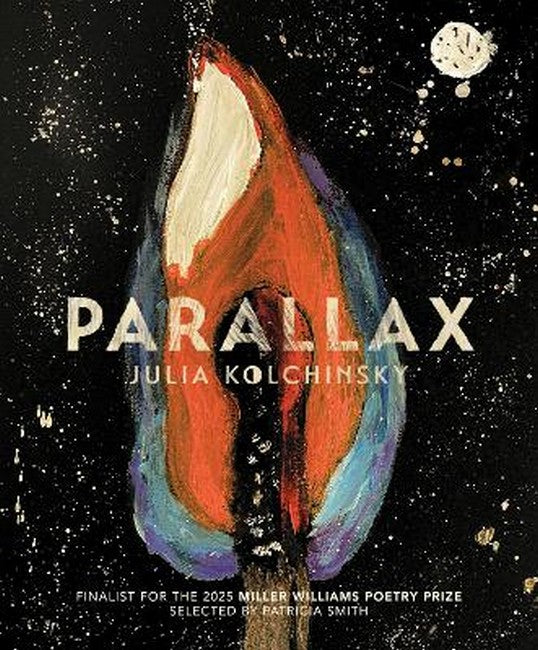Julia Kolchinsky (formerly Dasbach) emigrated from Dnipro, Ukraine when she was six years old. She is the author of three poetry collections: The Many Names for Mother, Don't Touch the Bones, and 40 WEEKS. Her writing has appeared in POETRY, Ploughshares, and American Poetry Review. She is Assistant Professor of English and Creative Writing at Denison University.
Request Academic Copy
Please copy the ISBN for submitting review copy form
Description
"Yet this new portrait of motherhood against a backdrop of war is ragged and despairing. Kolchinsky expands the motif to touch on her mother tongue, her motherland, and the obliteration of physical autonomy that comes with motherhood. ... Readers will find this a moving and impactful collection." --Publishers Weekly, April 2025 "In these exquisite poems, Kolchinsky writes about a world in tumult, imagining the alchemy that may possibly create gold or that may cause what is known to combust. Meanwhile in deft, loving, and elegant gestures, poems about the stakes that are closest to us flit in adoring musical lines. Even though the world may seem like it is splitting apart, the insistence and love of these poems are enough to stitch what matters together." --Oliver de la Paz, author of The Diaspora Sonnets and The Boy in the Labyrinth "Strong voices live in this book--as near as the poet's son, and as far as her homeland, Ukraine, currently in the midst of horrific war--and yet somehow so much wonder is delivered via Kolchinsky's line breaks and metaphors, so much love is given by what is said, and what is withheld, as is proper for a lyric poet. In the end, this is most of all a book about being a mother, which is to say, it's about the universe." --Ilya Kaminsky, author of Deaf Republic and Dancing in Odessa Love presses against despair in this exquisitely crafted homage to motherhood in a time of war. Ukrainian-born poet Julia Kolchinsky honors the parallax of parenting a neurodivergent child whose fascination with daily physical hurt is juxtaposed with the history and ongoing violence of the poet's homeland. You'll want to read and re-read this smart, honest, and complex collection that ultimately affirms 'we all hold fragments / of first light.'" --Ellen Bass, author of Indigo and The Human Line

